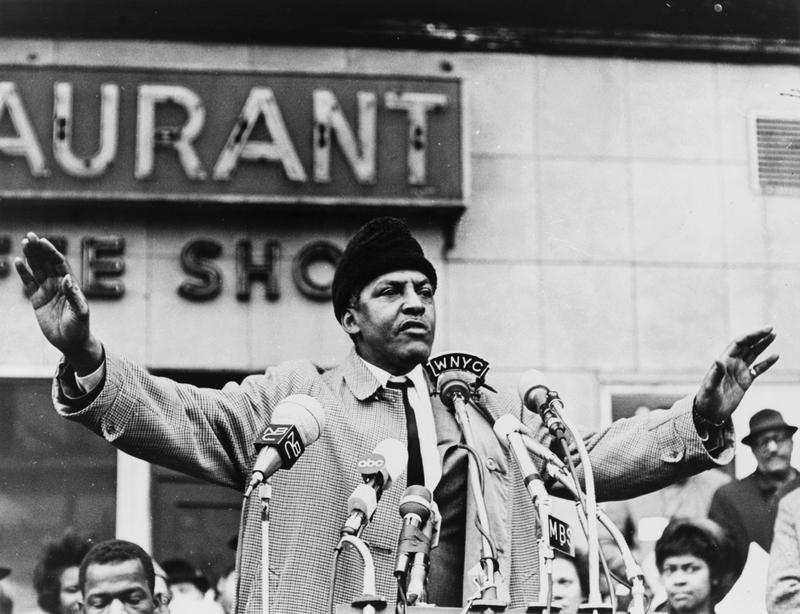
This episode is from the WNYC archives. It may contain language which is no longer politically or socially appropriate.
WNBC's Edwin Newman as moderator presents an "inquiry into the violence and racial tensions which marked last week as one of the darkest chapters in the history of New York City".
The panel includes:
James Farmer, National Director of CORE
Bayard Rustin, chief organizer of the 1963 March on Washington
Basil Paterson, spokesman for NAACP's NY branch
Cleveland Robinson of NYC's Commissioon on Human Rights
Asking questions are:
Al Robbins of the _New York Journal American_
Layhmond Robinson of the _New York Times_
Joseph Michaels of NBC News
Gabe Pressman of NBC News
The panel discusses recent demonstrations of Harlem in the context of grievances related to issues such as:
- housing
- the newly-passed Rockefeller laws
- minimum wage laws
- double standards by the police and the city.
The discussion ends for a call for support from white Americans.
Channel 4 New York
Edwin Newman of NBC News moderates a discussion of the Harlem riots, also discuss the outbreaks of violence in Rochester. Guests include James Farmer, Bayard Rustin, Basil Paterson, and Cleveland Robinson. Asking the questions are Al Robbins of the New York Journal American, Layhmond Robinson of the New York Times, and Joseph Michaels and Gabe Pressman of NBC News.
Discuss various issues in Harlem - including increased building. Also discuss new legislation called for by Governor Rockefeller - the "stop and frisk law" and the "no-knock search bill." Speaker calls the "stop and frisk law" unconstitutional.
Bayard Rustin discusses the events of March 10, when a delegation was taken to Albany to ask for a minimum wage. He also discusses the age of buildings (many predate modern codes) and the presence of rodents in living areas.
The people of Harlem resent the double standards applied to them for good reason - they do not work for the people of Harlem. Harlem residents are not protected in the same way as other citizens of the city.
References to the banning of Harlem demonstrations. References to Black Nationalists and Muslims. Black Nationalism is called the expression of frustration.
Call for support of white Americans, because these are the people who hold power in this country.
Audio courtesy of the NYC Municipal Archives WNYC Collection
WNYC archives id: 8364
Municipal archives id: T19
